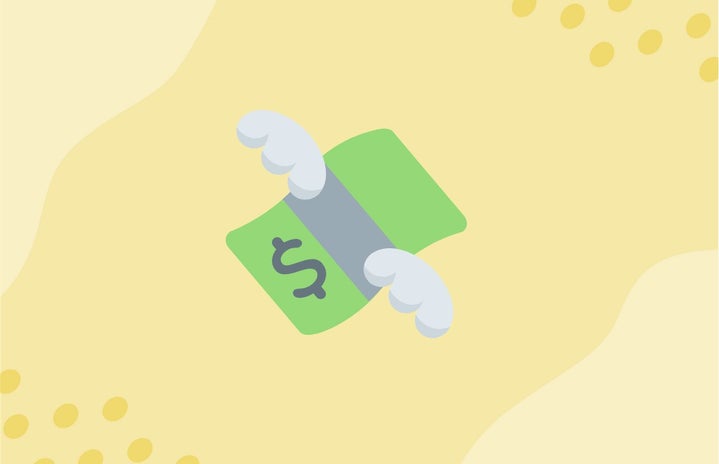One important part of self-care that’s often overlooked is financial health. Financial health refers to the different dimensions that shape one’s financial situation. Your savings, retirement plans, and income that you use to pay expenses influence your financial situation. Before you can pay for therapy, face masks, or yoga classes, you have to build a strong sense of financial health to have enough surplus income to afford those self-care treatments. Essentially, I believe that before we can fully pour into our mind, spirit, and body without intrusive financial worries coming up, we must dedicate our energies cultivating our bag. Here are a few tips that I learned to finesse my finances.
1. Expand Your Income
As college students, many of us receive scholarships, stipends, or refund checks during the semester, which can serve as easy sources of income and even contribute to our savings. However, those resources often occur once a semester, so they eventually run out. To avoid counting the moths in your wallet at the end of the semester, it is best to get an on campus job at the library, in a cultural center, or a research lab. Getting a job will help you pour more funds into your bag as well as build career connections and a track record of dependability as an employee. Remember that we are students first, so limit your hours during peak exam seasons and prioritize jobs where you don’t have to take work home. Additionally, if you don’t have time between your studies to fit in a 9-5 position, another option would be to develop a side hustle. If you have any talent whether it be graphic design, photography, or coding, you can make small business and get paid for your talents as a source of income.
2. Make a Budget
A budget can make your financial situation more tangible and easier to understand. A budget consists of income, expenses, savings, and rainy day buffers. As previously mentioned, income refers to any earned revenue like a scholarship, stipend or pay check. In college, students have fixed expenses like car insurance, medication, or Netflix and other subscriptions. For savings, you should put the money you have set aside or wish to set aside. A great strategy to stay with in your budget is to underestimate income, overestimate expenses, and leave at least $20-$50 aside in case of emergencies for each month. Your budget can serve as mini vision board for your financial goals as you plan to set aside money for particular purchases like a new phone, or parking pass.
3. Consult Financial Health Counselor
Finances can be very tricky to navigate. For more guidance on making a budget, building credit, or saving for a major financial goal , it’s best to consult a financial health counselor. Many companies that provide debit cards like Wells Fargo and Bank of America offer free financial counseling to help you find the best strategies to improving your financial health. There also budgeting and financial apps like Truebill that offer free and paid financial counseling services from the convenience of your phone. Moreover, some colleges like Duke have personal finance counselors that can provide similar services for free. If you can’t access resources like the ones I’ve mentioned, there are very impressive and informative financial Instagram pages and blogs to read as well.
Money isn’t everything, but financial worries often encompass our everyday life in intrusive and unhealthy ways. Financial health is very important and these few tips can lay the foundation for cultivating your own bag.


